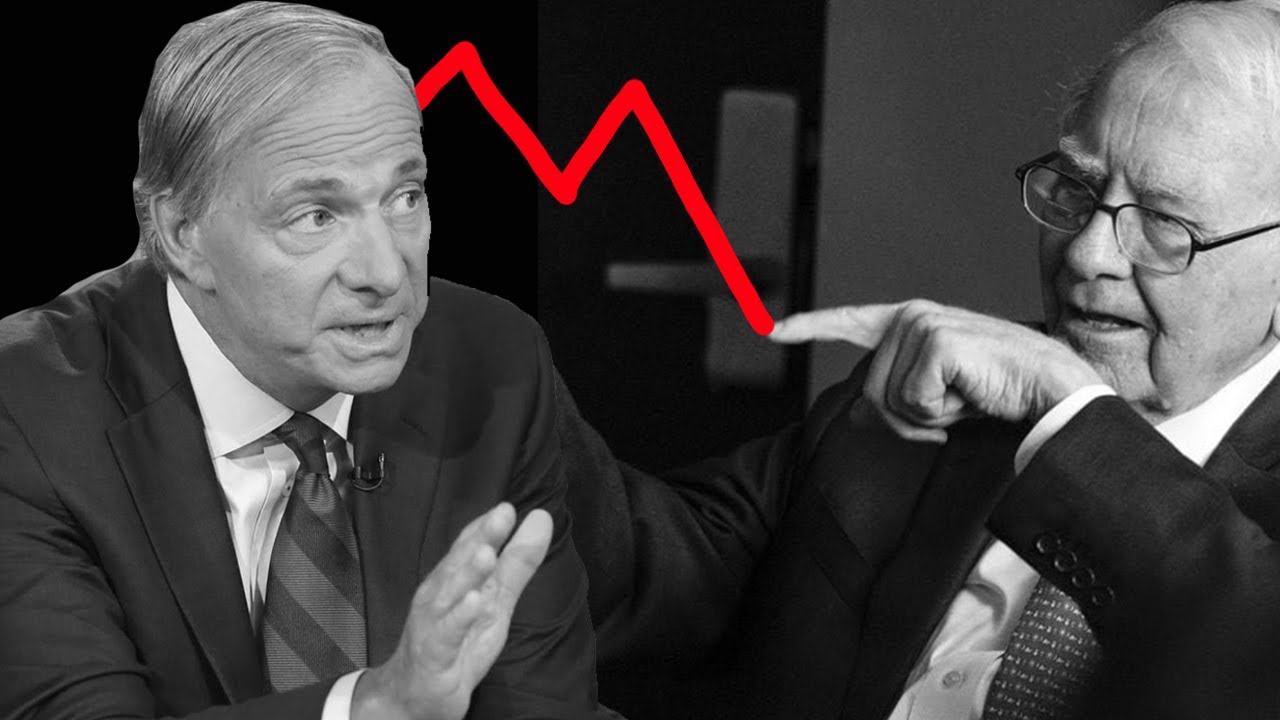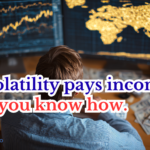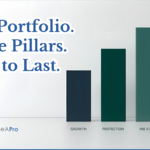This article appeared in the October 2020 issue of Property Investor News magazine.
To receive a sample copy visit www.property-investor-news.com

During the making of their success both employed great foresight and innovation, particularly during their early years. Buffett, known as the “sage of Omaha”, took his mentor Benjamin Graham’s value-investing philosophy to the next level by identifying companies with undiscovered intrinsic value. Using these investment techniques, Buffett began buying companies like Coca-Cola and Microsoft before they became household names. Buffett’s investment company Berkshire Hathaway, the vehicle for investing in and acquiring companies, is today worth $520bn and Buffett himself has a net worth of around $80bn.
Ray Dalio founded his investment company Bridgewater Associates in 1975 and it has now grown into the world’s largest hedge fund with $130bn under management. Bridgewater employs macro strategies that combine equities, currency, fixed income and commodities to create absolute returns intended to perform well in both bull and bear markets. Before most professionals had even heard of the concept, Bridgewater was employing sophisticated Risk Parity techniques to generate positive returns with limited risk. Soon, major institutions from around the world were queuing up to let Bridgewater manage their capital. Such was the demand that in 2006, Bridgewater had to close the doors to new capital for its flagship Pure Alpha hedge fund. Today, Dalio is said to have a net worth of around $17bn.
With these success stories both Buffett and Dalio progressed from being highly respected individuals within their own industry to global investment superstars and household names. Their words are clung onto everywhere: Buffettisms are famous maxims of investment wisdom and Ray Dalio has a whole book of Principles made famous by his bestselling book with the same title. Anyone interested in economics should watch Ray Dalio’s 30-minute YouTube video “How The Economic Machine Works”. It is a very easy-to-watch masterclass and being an economics graduate, I’d say it’s possibly more insightful than an economics degree!
Ray Dalio’s fame and reputation really soared after releasing his book Principles in 2017. Not only is it a bestseller with worldwide sales of 2.5 million copies, it also serves as a highly effective marketing tool for the real money-spinners that are Bridgewater’s high margin funds.
Buffett and Dalio are universally revered by the public and mainstream press. Social media loves Buffettisms and Dalio’s Principles. On the basis of their reputation and fame most people would jump at the opportunity to invest with either one.
Now for the bad news … looking under the bonnet
But did you know that both have been underperforming at a significant rate? Buffett’s main investment vehicle (Berkshire Hathaway) and Dalio’s flagship hedge fund (Bridgewater Pure Alpha fund) have delivered mediocre relative performance (vs the S&P 500) over the last decade and this has become significantly worse over the last couple of years. All numbers are to the end of August 2020 which is the latest available data at the time of writing this article.
Performance vs S&P 500 index: Return % pa
Data Sources: Berkshire Hathaway B shares. S&P 500 index performance, excluding dividends. 2020 Year-to-date performance for both: up to 28th August. Performance numbers from data compiled by various sources including investors in Pure Alpha fund.
As seen in the chart both investors have significantly underperformed the market. In 2019 Ray Dalio’s Pure Alpha fund returned 0.5% in a year when the benchmark S&P 500 index gained close to 20%. Buffett’s Berkshire Hathaway did a little better (+7.9%) but still underperformed the S&P 500 by almost 12%.
In 2020 (till August-end) it became worse. The S&P 500 index is up close to 4% but Berkshire Hathaway is down by 2.5% and Pure Alpha is down more than 18%. Since the end of 2018, Pure Alpha has underperformed the S&P 500 index by over 50% whilst Berkshire is more than 30% behind. Big underperformance.
If you had invested $100,000 …
Another way to look at it is in money terms, as summarised in the chart below. From the end of 2018 (to end-Aug), an investment of $100,000 into a low-cost Vanguard S&P 500 ETF (VOO) gained $36,272. The same investment into Berkshire Hathaway (B-shares) made only $4,972 whilst Dalio’s Pure Alpha Fund resulted in a loss of $18,193.
Why the underperformance?
Many analysts have blamed Buffett and Dalio for not changing strategy during a time when the world has evolved. Buffett famously invests only in companies that he fully understands. As a result, it looks like Berkshire Hathaway largely missed the tech/internet wave characterised by companies such as Facebook, Google, Amazon etc (one exception being a reasonable position in Apple). Berkshire also holds close to $140bn of capital uninvested, in cash, equating to more than 25% of its market capitalisation. During a time when the markets have rallied in response to QE and low interest rates this large cash balance has resulted in underperformance versus the market.
Ray Dalio’s Pure Alpha Fund appears to have misread the markets for two years running – in a pretty big way as shown in the charts above. After being too cautious in 2019 and missing a strong year, the fund again misread the markets earlier this year by cutting risk in March, during the height of the Coronavirus panic sell-off. Since then it has been slow to respond to a bull market that has been fuelled by supportive policies around the world.
The underperformance by both is significant in magnitude and duration. A number of investors will have redeemed their capital and moved on but many would have remained loyal because of better performance in prior years. And, no doubt, due to the perception of safety created by the fame and publicity. To be fair to Warren Buffett, he has been quiet of late but the media continues to love him nevertheless. Ray Dalio has remained active on the various social media channels, mainly through drip feeding his Principles on a daily basis – which, in their own right, are a great read.
Dalio and Buffett may well ride out this rough patch and start performing again, in the way they used to. Loyal investors could end up being rewarded for their patience. But a lot of ground needs to be made up and the opportunity loss would have been painful.
What lessons can investors draw?
The clear take-away is to focus on fundamentals before reputation. The statement “past performance is no guide to the future” is appropriate here and valuable in making an investment decision in any asset class. When time is limited, reputation and personality can often trick us into a false sense of security – reducing our perceived need for further due diligence. This can be further reinforced by brand building activity and marketing by the promoters.
Due diligence on Berkshire Hathaway could involve analysing the fund’s holdings, looking at any strategic inclusions or exclusions (eg exposure to the tech sector) and assessing how diversified the fund is. Also. the cash holding is a simple but important driver of relative performance against the market. If, as is the case, a large cash balance is held, the fund can underperform a buoyant market (the index has zero cash). Conversely, a large cash balance would be beneficial during a bear market.
With hedge funds such as Ray Dalio’s Pure Alpha fund, that due diligence isn’t straightforward though. Such strategies are opaque “black boxes” which can be hard to get inside of and analyse. The fund’s holdings do not have to be published and fund performance is only disclosed to its investors.
Property Investments – beware of fame!
However, when making loans or investments into property development projects, our evaluation should be much clearer. Usually, we are investing into a single known asset (property or land) which can be independently valued, with end values that have relative stability. With a loan, we expect to have legal security over the asset. The project itself is managed by a single management team with whom we can speak with and assess their track record and experience.
As an investor then, our job is to independently cross-check and de-risk the various factors under the bonnet – including: investor security, exit strategy, developer capability, project profitability and stress testing of costs and market risks. A lot of this DD was covered in my article here.
So the higher transparency in property projects certainly helps our due diligence. But that doesn’t make us immune from reputational and marketing bias. We still have to avoid being tricked into a false sense of security. Yes, we might consider the perceived credibility of a developer or a platform’s supposed due diligence process but remember that is part of the marketing package designed to make sales. The best way to cut through any bias is to form your own clean view by independently verifying and evaluating the various factors under the bonnet.
Don’t write them off yet – but lessons learnt
It would be churlish (and maybe premature) to consign Warren Buffett and Ray Dalio to the history books already. They are true legends who not only generated great performance, but also educated the world on how to invest. Not to mention the billions both have – and will – donate to philanthropic causes.
On the investment front Buffett and Dalio could well turn it around and start to outperform again. That remains to be seen. But just as both educated the world with their earlier success and words of wisdom, they might also have delivered an unintended lesson to investors: following reputation and fame may not always lead you to fortune.









